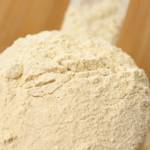Making Sense of the Supplements

Sorting through the numerous supplements displayed on the shelves of your local feed store or in the pages of your favorite horse magazine can be difficult. As an equine nutritionist, it is sometimes difficult for me to figure out the intended purpose of certain supplements. However, supplements can be divided into two broad categories.
The first category is nutrient supplements. A nutrient is a substance that is required in a horse’s diet. Nutrients that are typically supplemented include protein, vitamins and minerals. Protein is unquestionably an important component of the horse’s diet; however, most mature horses on high quality grass hay, and certainly on high quality alfalfa hay, are getting plenty of protein in the diet. While heavy exercise, pregnancy and lactation do increase the requirement for protein in the mature horse, sufficient protein will probably be supplied with feed that is given to meet the increased energy required by these horses. If the supplement does contain some protein or amino acids, it will not hurt a mature horse.
Vitamin and mineral supplementation is very common in horse diets. Many of these vitamins and minerals are necessary to balance regional nutrient deficiencies in hay or pasture.
Oversupplementation of vitamins and minerals can be harmful. Care should be taken when supplementing vitamin A or D and the minerals selenium and iodine. Oversupplementation can cause toxicity problems including death. Supplementation of B vitamins is not dangerous, just expensive. Common B vitamins supplemented to performance horses include biotin, thiamin, vitamin B12 and folic acid. Common minerals supplemented to performance horses include calcium, phosphorus, sodium, chloride, copper, and zinc.
The second category of supplements is nutraceuticals. The term nutraceutical combines the word “nutrient” (a nourishing food or food component) with “pharmaceutical” (a medical drug). These are substances sold under the premise of being dietary supplements, but for the expressed intent of treatment or prevention of disease. Nutraceuticals are being used as alternatives for both nutrition and medicine. A substantial number of these products make “drug” claims without any data to support the safety or the ability of the product to perform the intended task.
Nutraceuticals will eventually fall under supervision of the federal government; meanwhile, nutraceutical manufacturers continue to prey on gullible horse owners. The following is a brief list of some nutraceuticals being used in the horse industry:
• Carnitine – currently being studied
• Coenzyme Q10 – not enough data
• Creatine – no improvement in performance
• DMG (Dimethylglycine) – inconclusive results
• HMB (ß-hydroxy-ß-methylbutyrate) – currently being studied
• MSM (Methylsulfonylmethane) – no scientific benefit
With the multitude of supplements available, common sense seems to be the logical approach to deciding what is right for your horse. Logical thinking dictates performance horses undergoing the stress of training and competition will need some supplementation. Nutrient supplements are a good first choice; however, oversupplementation can be as bad as, or worse than, no supplementation. As a rule, if you plan to feed a supplement sticks with a single well-balanced supplement. With regard to nutraceuticals, if they seem to be making claims that are too good to be true, chances are they will not live up to the claims.








